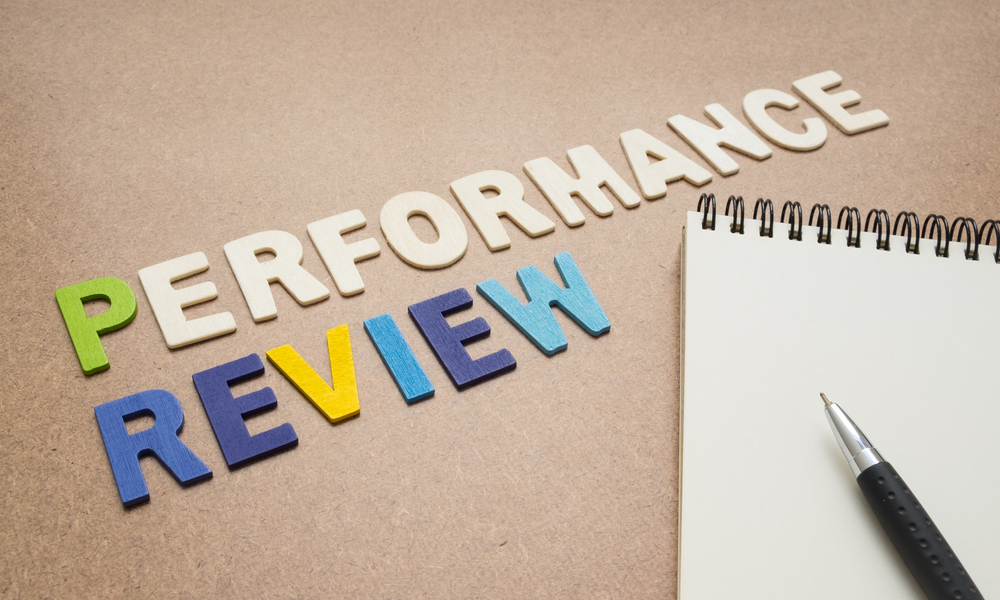
Why You Shouldn’t Skip the Performance Review
An annual review in 2021 is a good way to surface lessons learned from 2020. But it's also an opportunity to better support the work and goals of a challenged staff.
A new year is typically a time to take stock of things—look back at the past year and plan for the one to come. Following a year like 2020, though, it’s tempting to just skip over the past year, treat it like an outlier, and move on.
But there are good reasons to look back, especially when it comes to performance reviews. The annual performance review is necessary as a tool for establishing goals and salaries for the coming year, but it’s also a good way to assess how you, as a leader, and your team weathered the storm. And because the past year has been different, what you need to consider in the performance review process will need to change as well.
Finding out at the end of the year that you’ve been missing the mark all year is unhelpful—to say the least.
In a LinkedIn post last month, Donna Oser, CAE, president and CEO of the Michigan Society of Association Executives, cautioned association CEOs and their boards against skipping their annual performance review.
For one thing, the relationship between a CEO and the board should now be an iterative one, involving more than just quarterly check-ins. (I’ve heard from many execs in the past year that board calls have become monthly events, a positive thing.) That level of interaction shouldn’t go to waste.
“To avoid unpleasant end-of-year surprises, board members should be encouraged to provide feedback to the CEO on an ongoing basis,” Oser writes. “As a CEO, finding out at the end of the year that you’ve been missing the mark all year is unhelpful—to say the least.”
Because the pandemic has revealed so many things about an executive’s leadership style, it’s a good time to discuss what worked well and what didn’t, and then make professional-development plans accordingly. As Oser writes: “The skilled executive seeks to continue their professional growth to effectively address the job’s ever-evolving demands and complexities… It helps the CEO to identify areas and opportunities for development.”
The same is true for the evaluations an exec provides for staffers, but the factors in assessing performance are different now. The toxic remote worker, something most organizations hardly knew existed a year ago, is now very much a thing. And because the way you’ve managed workers in 2020 was different, the way you evaluate them will have to change too.
In a recent article in the New York Times, reporter Julie Weed points out that cases of weak performance in the past year ought to be considered in the context of all the mitigating factors that the pandemic delivered. A leader will have to be able to assess what represents an employee’s shortcoming that requires correction and what constitutes a temporary COVID-related issue. “Poor performance owing to temporary factors shouldn’t be judged the same way as poor performance from lack of skills or effort,” Weed writes.
Performance reviews now are even more of a test of a leader’s soft skills than they have been in the past. But it’s harder than ever to cultivate the kind of casual rapport that many employees need in a remote environment. Leaders have done their best, but “management by Zooming around” hasn’t really caught on—check-ins with employees have been a lot more formal and task-based in the past year. To that end, leaders and employees will have to do more prep work to understand each others’ perspectives.
George Mason University management professor Kevin Rockmann told the Times that it’s now more likely that boss and employee disagree on things. “Both parties should take time to evaluate the employee’s performance before the meeting and send it to the other in writing,” Weed writes.
The pandemic likely upended a lot of your association’s goals for the past year. But at the staff level, the needs are largely the same—clear communication, a sense of belonging, and a plan for how to improve. All things that are too important to pass up.
How have you been handling performance reviews in the context of the pandemic and remote staff? Share your experiences in the comments.
(PanuddaN/iStock/Getty Images Plus)






Comments